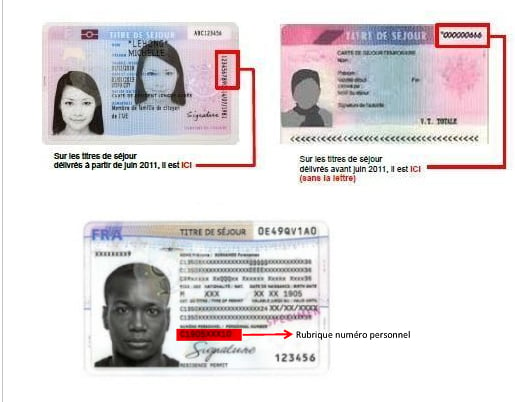Once you receive your card, you will notice that your home address is printed on the document.
So if you subsequently move after receiving your card, you need to change the address.
You have three months from the date you move to inform authorities of your change of address. In common with many aspects of public administration these days, the process can be started online here.
If you are moving house but staying within the same département, your address change is handled by the préfecture which issued your card.
If you have moved to a different départment, you will need to contact the préfecture responsible for your new home. Again, the process can be started online. Be aware that additional documentation may be required.
Requests made online will be directed to the préfecture or sub-préfecture of the place of residence for further directions.
Once you have made the request you do not need to do anything else unless you are contacted with a request for extra documentation.
Once the renewal process is complete, and all requested documents verified, a new carte de séjour will be issued.
Problems accessing the online portal
Many of you have written to us after experiencing difficulty accessing the online platform to change your address.
The online process is fairly new and it seems that it doesn’t work for everyone, with several Local readers who got the post-Brexit carte de séjour for UK nationals reporting that their card number is not recognised.
In order to create the online account necessary to change your address, you must enter your visa or titre de séjour number (also known as a numéro AGDREF). This is a 13-digit number which on a standard carte de séjour is either along the top or the side, as below.

On the post-Brexit carte de séjour it is listed as the Numéro personnel and is just above the signature on the card.
Unfortunately, the online portal often bugs and displays a message indicating that your number is not recognised.
If this happens, you need to book an appointment at the préfecture which issued your card in the first place. If the system doesn’t recognise your card number then it may not be possible to use the préfecture’s online booking system.
Préfecture appointment
If you’re unable to use the online booking system you will have to either email, call or show up at the préfecture and explain the situation in as much detail as possible. It may be worth taking screenshots showing that the online system rejected your card number.
Different préfectures have different systems but in Paris, where carte de séjour applications are dealt with by the Préfecture du Police, the online form to send such a mail, can be found here or email [email protected]
Préfectures will then send you either an appointment, or a letter inviting you to visit when convenient. Some have their own list of required documents which can be different to the ones demanded by the online portal, so take careful note of what they are asking you for.
READ ALSO Visas and residency permits: How to move to France (and stay here)
Is the carte de séjour compulsory?
The residency permit has always been required for non-EU nationals and since Brexit that includes Brits.
Under the Brexit Withdrawal agreement, Britons who were already resident in France before December 31st 2020 have the right to continue living here – BUT they need to apply for the carte de séjour.
Application for this is compulsory for almost every Briton – including people who have been in France for a long time, people married to French or EU nationals and people who previously held a European carte de séjour. Only those who have dual nationality with an EU country are exempt from this requirement.
The deadline for applications for the post-Brexit residency cards was September 30th – but Brits have until January 1st 2022 before they are legally required to be in possession of the card.



 Please whitelist us to continue reading.
Please whitelist us to continue reading.
Any idea what about those moving overseas?
Give me strength…
We’ve not moved, but we have been given a “proper” road name and number (was Lieu-Dit…) Should we still have this corrected?
We moved house a few weeks ago and have to make an appointment online to be able to collect the new cards from Laval.
There are 3 cards which need a separate appointment for each of us. Bizarre as the originals were sent by registered post.
There is a fee payable for the new cards too which has to be paid by Timbres Fiscal/stamps. It is either 25 or 29 euro’s, unfortunately the price is handwritten on our letter and is illegible.